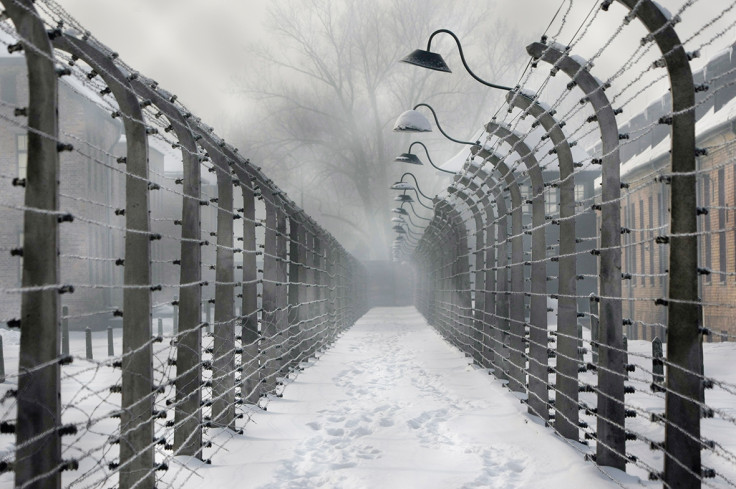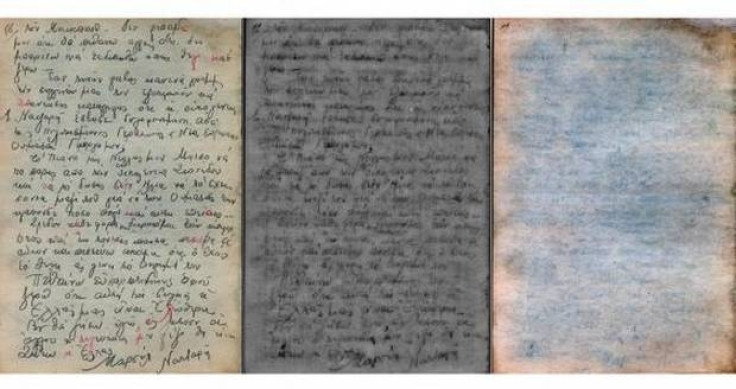Horrifying testimony of the gassing of Jews at Auschwitz deciphered after more than 70 years
Advanced digital imaging techniques reveal horrors of Auschwitz gas chambers.

The horrifying handwritten testimony of an Auschwitz survivor forced to help Nazi death squads has finally been deciphered.
Marcel Nadjari, a Greek Jew, wrote harrowing accounts of how thousands of Jews were herded into the gas chambers "packed like sardines" each day.
The then 26-year-old scribbled notes on scraps of paper at the camp, and buried the 13-page manuscript at the Nazi-occupied site in southern Poland in 1944.
But the writing had faded over time and it is only through the latest digital imaging techniques that historians can read what he witnessed 73 years ago.
Nadjari wanted to avenge the death of his mother, father and sister who had died at Auschwitz the year before.
He was one of around 2,200 members of the Sonderkommando - Jews forced by the SS to escort fellow Jews to the gas chambers.
Their grim task was to drag the gassed bodies of men, women and children to the ovens. After they had been burnt they would collect valuables such as gold fillings, and throw the ashes into a nearby river.
Nadjari wrote: "Often I thought of going in with the others, to put an end to this. But always revenge prevented me doing so. I wanted and want to live, to avenge the death of Dad, Mum and my dear little sister."
Fifteen ovens
The young Greek did not think he would make it out of the camp alive, and in November 1944 fearing for his life he placed his testimony in thermos in a leather pouch and buried it near Crematorium III.
"The crematorium is a big building with a wide chimney and 15 ovens. Under a garden there are two enormous cellars. One is where people undress and the other is the death chamber," he wrote. "People enter it naked and once about 3,000 are inside it is locked and they are gassed. After six or seven minutes of suffering they die."
But Nadjari did survive the Second World War, and moved to New York in 1951. He worked as a tailor and went on to have two children.

He died aged 53 in 1971 – nine years before his notes were unearthed by a Polish forestry student.
However, the wet soil meant that only around 10% of his harrowing eyewitness account was legible.
But recently Russian historian Pavel Polian decided to rescue it, with the help of Russian IT expert Alexander Nikityaev.
The pair spent a year using Adobe Photoshop's digital imaging software to restore the faded text. Using light filters 90% of the notes can now be read.
Polian told the BBC: "Nadjari's desire for revenge stands out - that's different from the other accounts. And he pays much attention to his family. For example, he specifies who he wants to receive his dead sister's piano."
Nadjari's testimony is important, because of the 110 Sonderkommando members who survived the war, few wrote about the gruesome tasks they were forced to perform during the conflict.






